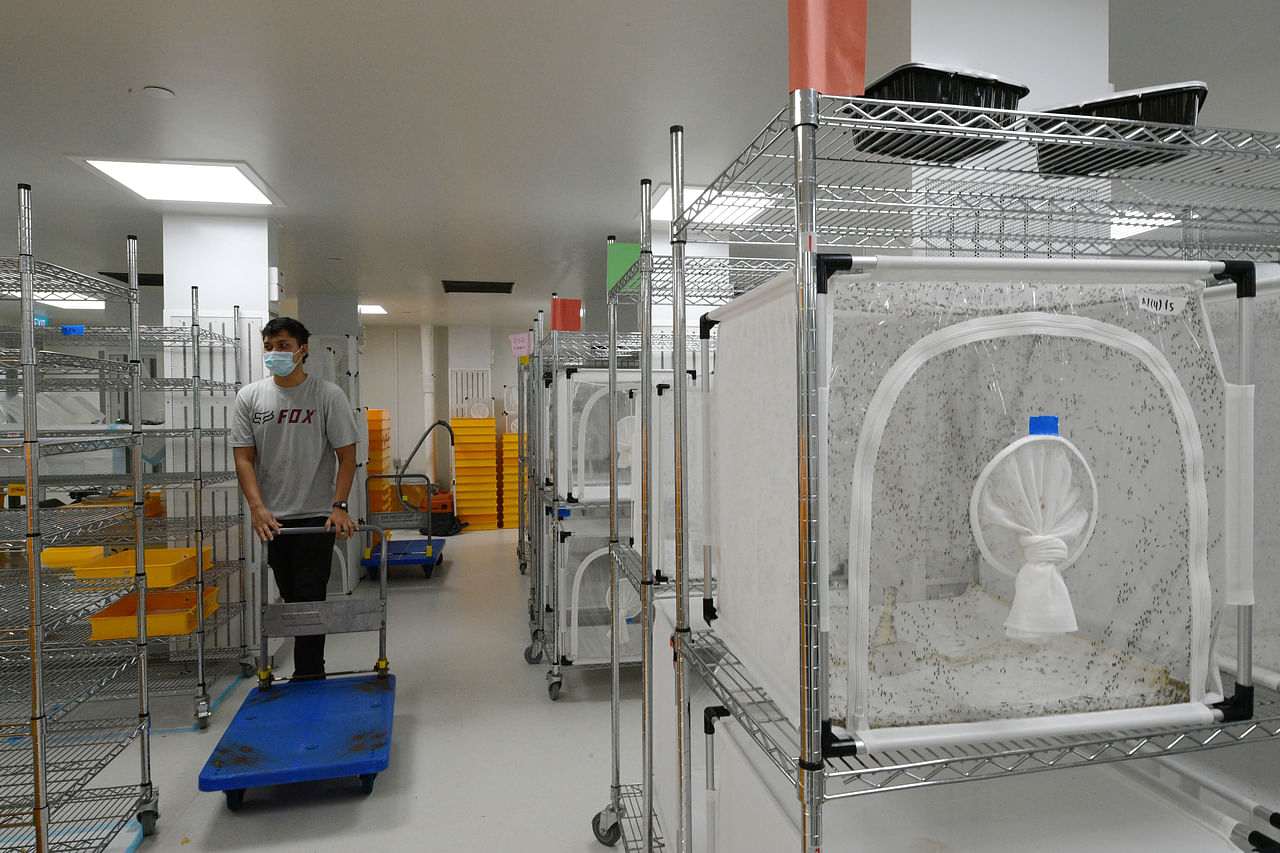200 million Wolbachia Aedes mosquitoes released so far, but nationwide success takes time: NEA


SINGAPORE - About 200 million Wolbachia-Aedes aegypti mosquitoes have been bred at the National Environment Agency's (NEA) "mosquito factory" since it was opened in 2019 and then released in certain areas of the island.
This is part of the agency's fight against dengue in the Republic.
But it will be some time before Project Wolbachia expands to other parts of the island, as time is needed to fine-tune release methods and develop the relevant technology, said senior scientist Deng Lu.
He is head of production and the automation section of NEA’s Ang Mo Kio Wolbachia mosquito production facility, which The Straits Times visited last Wednesday (May 25).
Mr Deng said that roughly 1.5 to 2 million Wolbachia-Aedes mosquitoes are released every week as part of Project Wolbachia.
The $5 million facility at Techplace II in Ang Mo Kio Avenue 5 was opened in 2019 to provide scalability in the production and release of Wolbachia-Aedes mosquitoes needed for Project Wolbachia.
The project involves the release of male Wolbachia-Aedes mosquitoes to suppress the urban Aedes aegypti mosquito population, which is the primary vector of dengue here.
The male Wolbachia-Aedes mosquitoes do not bite or transmit disease, but when they mate with urban female Aedes aegypti mosquitoes that do not carry Wolbachia, the resulting eggs do not hatch.
This will eventually reduce the number of Aedes mosquitoes here.
Since the project was launched in 2016, it has gone through five stages of field studies, with mosquitoes being released in more areas around the island.
Wolbachia-Aedes mosquitoes have been released at about 1,800 Housing Board blocks across study sites in Yishun, Tampines, Choa Chu Kang and Bukit Batok, and within 5 sq km of a landed estate in Marine Parade.
There are a combined 160,000 homes in these areas.
NEA said it has observed up to 98 per cent suppression of Aedes aegypti mosquitoes and up to 88 per cent fewer dengue cases at study sites where Wolbachia-Aedes mosquitoes have been released for at least a year.

Asked why dengue has not yet been eradicated from Singapore despite the success of Project Wolbachia, Mr Deng said: "Although we have very good (mosquito) population suppression and dengue suppression, we're only covering a limited area. In order to benefit more areas, we need to scale up the production (of mosquitoes) and release more."
But this is not an easy task, he added.
"Mosquito production on a mass scale is a very specialised area. There's no mature technology, it's not a turnkey technology we can buy off the shelf... we have to develop the equipment and technology almost from scratch.
"Also, because it's an exploratory project, we're still fine-tuning the release methods at our study sites. Once we get that data and the technology matures, then we can expand to more areas... This will take some time."
NEA added: "Wolbachia technology is not a silver bullet and cannot replace the basic preventive measures of good housekeeping and keeping premises free of stagnant water for mosquitoes to breed."

This article was first published in The Straits Times. Permission required for reproduction.